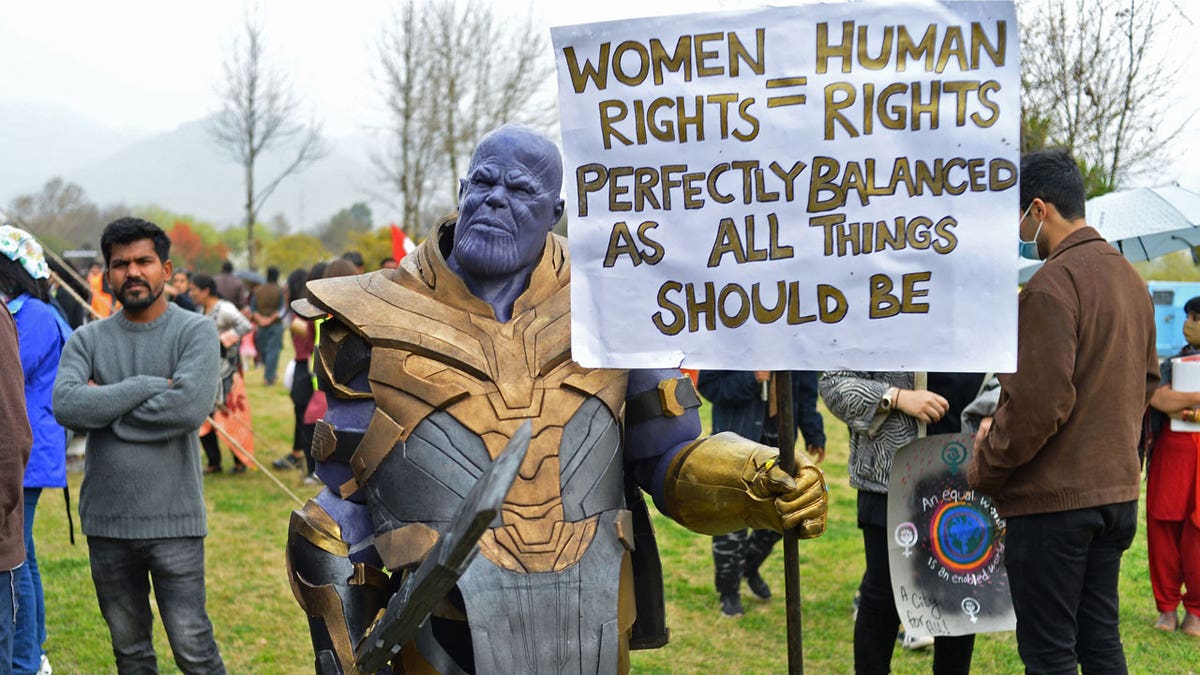Climate change alarmism is a ‘civic religion’ for the global elite: Christian Whiton
Former State Department official Christian Whiton weighs in on President Biden’s push for his climate change agenda following the midterm elections on ‘Cavuto Live.’
As the country celebrates family time on Thanksgiving, The New York Times on Wednesday profiled an environmental activist lobbying for "voluntary human extinction," comparing the man’s personality to that of the "gentle" children’s host Mr. Rogers.
The article is headlined "Earth Now Has 8 Billion Humans. This Man Wishes There Were None" and is written by climate reporter Cara Buckley. She highlighted Les Knight, the founder of the Voluntary Human Extinction movement. Their goal is an Earth without people.
"Beyond advocating for universal access to birth control and opposing what he calls reproductive fascism, or ‘the lack of freedom to not procreate,’ Mr. Knight says that despite our many achievements, humans are a net detriment to the Earth," Buckley wrote.
NEW YORK TIMES OP-ED SAYS POPULATION DECLINE MAY MAKE 'CLIMATE CHANGE EASIER TO COMBAT'

NEW YORK, UNITED STATES - 2020/08/20: A view of The New York Times Building Headquarters. (Photo by John Nacion/SOPA Images/LightRocket via Getty Images)
In order to avoid confusion about the extinction agenda, "Mr. Knight added the word ‘voluntary’ decades ago to make it clear that adherents do not support mass murder or forced birth control, nor do they encourage suicide."
However, the Times journalist broached the negative connotations that could be connected with Voluntary Human Extinction’s goals.
"The idea that population must be controlled has also lead to forced sterilizations and measures that have proven inhumane or have been linked to racist theories like eugenic," she wrote. "Mr. Knight, 75, is the founder of the Voluntary Human Extinction movement, which is less a movement than a loose consortium of people who believe that the best thing humans can do to help the Earth is to stop having children."

Extinction Rebellion climate change protesters briefly block the road in the City of London, Thursday, April 25, 2019. The non-violent protest group, Extinction Rebellion, is seeking negotiations with the government on its demand to make slowing climate change a top priority. (AP Photo/Matt Dunham)
Despite the rather broad goals of the extinction movement, the New York Times journalist connected Knight to a popular children’s host, the late Fred Rogers.
"Tall and gentle, Mr. Knight comes across as clear-eyed and thoughtful, like a mash-up of Bill Nye and Fred Rogers. While Mr. Knight may be against the creation of more humans, he shows great compassion for the ones that already exist."
The environmentalist's overall view of people is not positive, however. He calls humans the "most destructive of invasive species, and as super predators."
Highlighting Knight's lighter side, the Times noted that in his spare time he organizes games of "nude croquet" in his backyard.

A man wearing a costume of Thanos' character takes part in a women independence march. Thanos is a villain from "The Avengers" movies that causes the extermination of half of all life in the universe in order to solve resource scarcity due to overpopulation. (Photo by Farooq NAEEM / AFP) (Photo by FAROOQ NAEEM/AFP via Getty Images)
BIDEN CLIMATE NOMINEE TOUTED 'ENVIRONMENTAL UPSIDE' TO PANDEMIC
During the coronavirus pandemic, journalists repeatedly highlighted the environmental upside of the virus, which has now killed 6.6 million people. On the March 19, 2020 edition of "CBS This Morning," reporter Vlad Duthiers cited the "silver lining" to the virus is fewer people out and about.
"This is Venice.... You can never see the waters because they're so murky from all the boats. This time, now you can see the crystal-clear waters of the Venice canals," he addded.
CLICK HERE TO GET THE FOX NEWS APP
On the April 22, 2020 edition of the "Today" show, weatherman Al Roker shared with how the pandemic allowed nature to "thrive."
"Less foot traffic, less waste, less energy consumption, allowing certain animals to thrive and impacting the Earth's atmosphere as well," he said.


